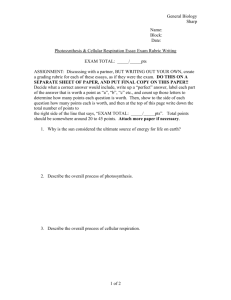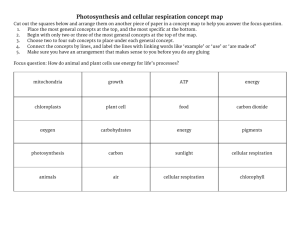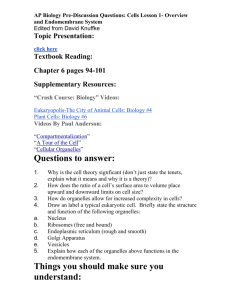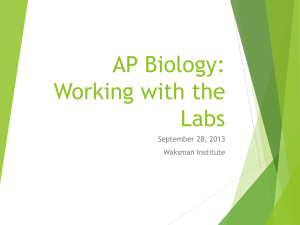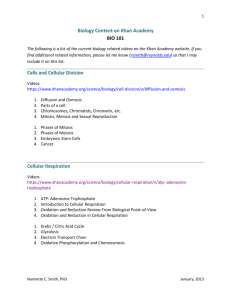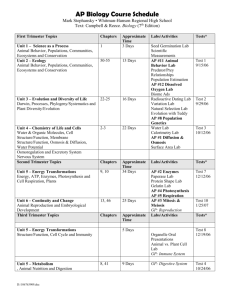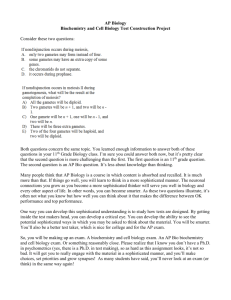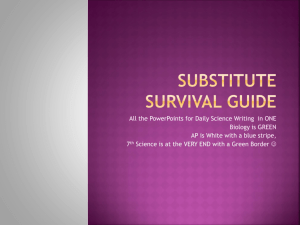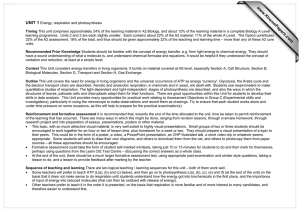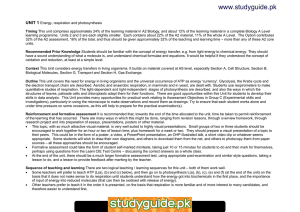Course Outline () - Bergen Academy and Technical
advertisement
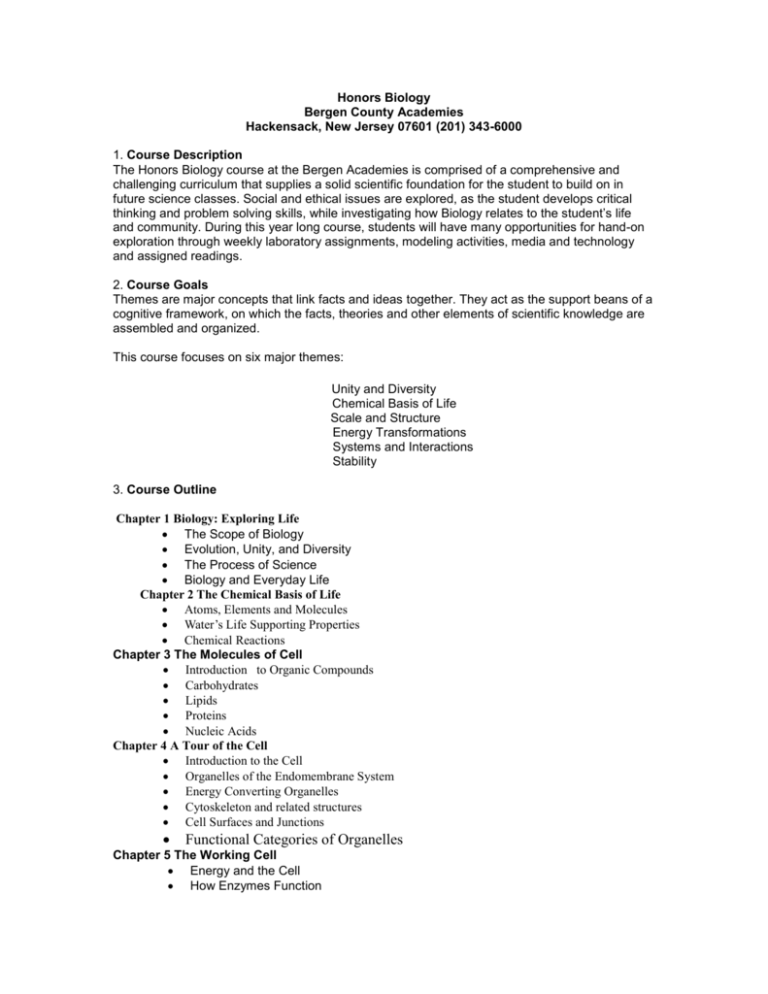
Honors Biology Bergen County Academies Hackensack, New Jersey 07601 (201) 343-6000 1. Course Description The Honors Biology course at the Bergen Academies is comprised of a comprehensive and challenging curriculum that supplies a solid scientific foundation for the student to build on in future science classes. Social and ethical issues are explored, as the student develops critical thinking and problem solving skills, while investigating how Biology relates to the student’s life and community. During this year long course, students will have many opportunities for hand-on exploration through weekly laboratory assignments, modeling activities, media and technology and assigned readings. 2. Course Goals Themes are major concepts that link facts and ideas together. They act as the support beans of a cognitive framework, on which the facts, theories and other elements of scientific knowledge are assembled and organized. This course focuses on six major themes: Unity and Diversity Chemical Basis of Life Scale and Structure Energy Transformations Systems and Interactions Stability 3. Course Outline Chapter 1 Biology: Exploring Life The Scope of Biology Evolution, Unity, and Diversity The Process of Science Biology and Everyday Life Chapter 2 The Chemical Basis of Life Atoms, Elements and Molecules Water’s Life Supporting Properties Chemical Reactions Chapter 3 The Molecules of Cell Introduction to Organic Compounds Carbohydrates Lipids Proteins Nucleic Acids Chapter 4 A Tour of the Cell Introduction to the Cell Organelles of the Endomembrane System Energy Converting Organelles Cytoskeleton and related structures Cell Surfaces and Junctions Functional Categories of Organelles Chapter 5 The Working Cell Energy and the Cell How Enzymes Function Membrane Structure and Function Chapter 6 How Cells Harvest Chemical Energy Introduction to Cellular Respiration Stages of Cellular Respiration and Fermentation Interconnections Between Molecular Breakdown and Synthesis Chapter 7 Photosynthesis: Using Light to Make Food An Overview of Photosynthesis The Light reactions: Converting Solar Energy to Chemical energy The Calvin Cycle: Converting Carbon dioxide to Sugars Photosynthesis Reviewed and Extended Photosynthesis, Solar Radiation and the Earths Atmosphere Chapter 8 The Cellular Basis of Reproduction and Inheritance Connections between Cell Division and Reproduction Eukaryotic Cell Cycle and Mitosis Meiosis and Crossing Over Alteration of Chromosome Number and Structure 5. Methodology The various methodologies used in this course include: Laboratory exercises Discussions Audio visual materials Lecture Computer technology Peer teaching Individual and group projects 6. Instructional Material Reference Textbook: Biology Concepts and Connections (5th Edition) Pearson


